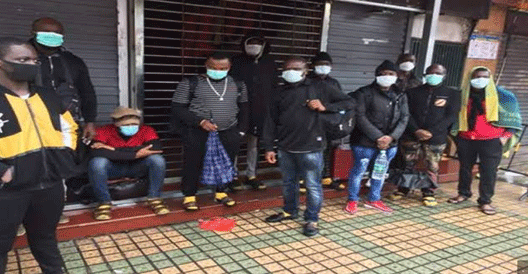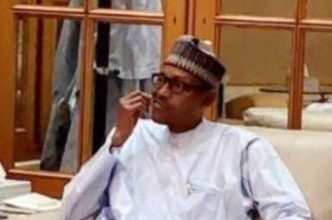Radio
African ambassadors in China lodge formal complaint to address racism in China

African ambassadors in China have written to the Chinese foreign minister to express their concerns over the discrimination against Africans, especially in Guangzhou.
Several African countries have separately also demanded that China address their concerns that Africans are being mistreated and harassed.
China, having succeeded in curbing the spread of Coronavirus, has tightened border controls, all in a bid to prevent imported cases of Coronavirus.
However, they have gone about this in a way that has elicited outrage from Africans.
Africans in Guangzhou have reportedly been ejected from their apartments by their landlords. They have also been subjected to Coronavirus test several times without being given results and being shunned and discriminated against in public.
Videos shared online show Africans stranded, with some forced to sleep on the streets, after being ejected from their hotels and apartments.

The ambassadors’ note highlighted a number of reported incidents, including that Africans were being ejected from hotels in the middle of the night, the seizure of passports, and threats of visa revocation, arrest or deportation.
The ambassadors’ note said such “stigmatisation and discrimination” created the false impression that the virus was being spread by Africans.
“The Group of African Ambassadors in Beijing immediately demands the cessation of forceful testing, quarantine and other inhuman treatments meted out to Africans,” it said.
The note was sent to State Councilor Wang Yi, the Chinese government’s top diplomat, copying the chair of the African Union, South African President Cyril Ramaphosa and all African foreign ministers.
China has denied any discrimination.
“The Guangdong authorities attach great importance to some African countries’ concerns and are working promptly to improve their working method,” Chinese foreign ministry spokesman Zhao Lijian said in a statement published Sunday, referring to the province in which Guangzhou is located.
“African friends can count on getting fair, just, cordial and friendly reception in China,” he said, adding the foreign ministry will stay in close communication with Guangdong authorities and address the “African side’s reasonable concerns and legitimate appeals”.
Zhao’s statement did not reference the ambassadors’ note to Wang and did not mention the allegations of discrimination against Africans in the city.
Foreign affairs official Liu Baochun told a news conference separately on Sunday, April 12, that Guangzhou is enforcing anti-virus measures on anyone who enters the city from across the national border, regardless of nationality, race or gender.
On Saturday, Ghana’s foreign minister of affairs Shirley Ayorkor Botchwey said she had summoned the Chinese ambassador to express her disappointment and demand action.
Kenya’s foreign ministry has also “officially expressed concern”, adding the government is working with Chinese authorities to address the matter.
On Friday, Nigerian legislator Akinola Alabi tweeted a video of a meeting between the leader of Nigeria’s lower house of parliament, Femi Gbajabiamila, and Chinese Ambassador Zhou Pingjian. During the meeting, Gbajabiamila demanded an explanation from the diplomat after showing Zhou a video of a Nigerians complaining about mistreatment in China.
The Chinese embassy in Zimbabwe on Saturday dismissed the accusation that Africans were being deliberately targeted.
“It is harmful to sensationalize isolated incidents,” it said in a tweeted statement. “China treats all individuals in the country, Chinese and foreign alike, as equals.”




